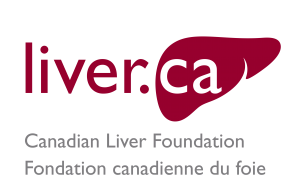New study on hepatitis B vaccination

New study suggests that Ontario should shift from adolescent to newborn hepatitis B vaccination

A recent University Health Network(UHN) led research study found that despite being recommended, not all pregnant women are universally screened for hepatitis B virus (HBV) in Ontario, and the majority of those who do test positive do not receive follow-up testing or interventions. The study also found that children born in Canada are acquiring hepatitis B before they are vaccinated in grade 7. While this was not a study funded directly by the CLF, its findings are certainly of interest to those living with HBV.
Globally, more than 257 million people worldwide are chronically infected with HBV. HBV increases risk of cirrhosis of the liver and liver cancer, which has become one of the fastest rising and deadliest forms of cancer in Canada.
The World Health Organization (WHO) recommends that all newborns receive a first vaccine against hepatitis B at birth. However, only three provinces vaccinate at birth; five vaccinate at two months of age; and five provinces – including Ontario – vaccinate children in Grades 6 and 7.
The study found that prenatal screening for HBV in Ontario between 2012 and 2016 was at 92.7 per cent, and that only 38% received follow-up testing which is necessary to determine whether antiviral should be given in the third trimester. The study also noted that at least 139 children born in Ontario between 2003 and 2013 were infected with HBV before being eligible for adolescent vaccination, which highlights deficiencies in the current vaccine strategy in Ontario. These infections could have been likely been prevented by vaccination at birth or in infancy. Once the infection is established in a newborn or infant, it is usually lifelong.
“One rationale for not vaccinating at birth is that universal prenatal screening and related interventions prevent transmission from mother to baby,” explains Dr. Jordan Feld, a liver specialist at UHN’s Toronto Centre for Liver Disease. “However, our study shows that screening is imperfect, and that children born in Canada are becoming infected with hepatitis B before getting vaccinated as teenagers. That is why we should reconsider our current vaccination strategy in Ontario.”
“Canadian guidelines recommend changes to provincial hepatitis B immunization strategies if women are not screened universally and/or children become infected. We have met this threshold, and a change is needed,” explains Dr. Mia Biondi, a primary care nurse practitioner in the community, and researcher at UHN’s Toronto Centre for Liver Disease. “Infant hepatitis B vaccination could be seamlessly integrated into primary care, in line with well-baby visits and other vaccinations. It’s a simple solution.”
The authors of the study recommend that Ontario move to HBV vaccination at birth and improve existing systems to ensure that all women are screened for hepatitis B during pregnancy. If the test is positive, they should receive follow-up to prevent vertical transmission and ensure they receive appropriate HBV care.
_______—_______
This study referenced was published in the Canadian Medical Association Journal, October 2020.
Study prepared by:
Mia J. Biondi NP-PHC PhD, Alex Marchand-Austin MSc, Kirby Cronin BSc, Natasha Nanwa PhD, Vithusha Ravirajan MPH, Erin Mandel MPH, Lee W. Goneau PhD, Tony Mazzulli MD, Hemant Shah MD MScCH, Camelia Capraru MD, Harry L.A. Janssen MD PhD, Beate Sander RN PhD, Jordan J. Feld MD MPH


